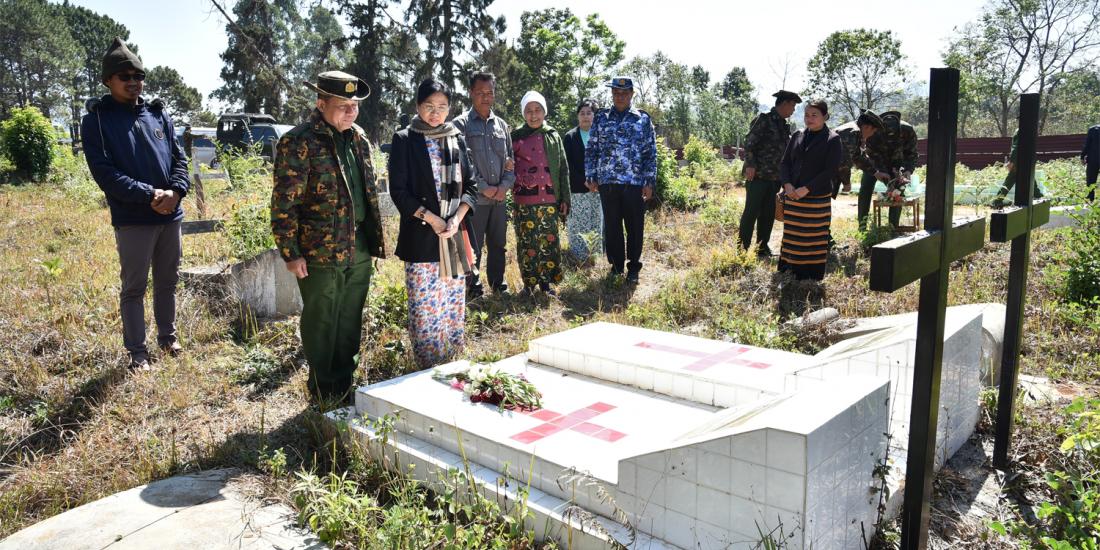The Myanmar military has for the first time asked U Tin Oo, patron of the National League for Democracy (NLD) and former military commander-in-chief, to attend Armed Forces Day on March 27. This year’s celebration marks the 75th anniversary of Armed Forces Day.
This year is the first time U Tin Oo, 93, has been invited to join Armed Forces Day since his departure from the military. He joined the army in 1946 and became commander-in-chief and defense minister in 1974 but was forced to retire in March 1976.
He was then imprisoned for alleged involvement in an attempted coup in July 1976 and released in 1980. Eight years later he co-founded the NLD, becoming its vice-chairman and then chairman.
The politician and retired general has long been disregarded by the Tatmadaw and was put under house arrest twice by the former military juntas, first in from 1989-1995 and then from 2004-2010.
This week, the Yangon regional minister of border affairs and security visited U Tin Oo and his family to ask if they would be able to join the “diamond jubilee” for the 75th Armed Forces Day.
U Myint Oo, personal aide to U Tin Oo, told The Irrawaddy that they have yet to receive an official invitation and they have not confirmed the NLD leader’s attendance.
“We will let you know if we get the formal invitation [from the military]. At that point we will discuss the matter with the State Counselor [Daw Aung San Suu Kyi], so we told the minister to wait for a response until the end of this month,” U Myint Oo said.
U Tin Oo, who suffered a stroke in early 2017, is currently in good health, according to his aide.
Armed Forces Day is an annual celebration by the Myanmar military to commemorate their armed struggle against the Japanese fascists in March 1945.

For this year’s 75th anniversary diamond jubilee, invitees include family members of General Smith Dun, who served as the first commander-in-chief of the country’s army from Jan. 4, 1948 to Jan. 31, 1949.
On Feb. 14, current military chief Senior General Min Aung Hlaing visited the grave of Gen. Smith Dun during a trip to Kalaw, a hill town in Shan State. He also met with Gen. Smith Dun’s surviving family members and invited them to the Armed Forces Day Celebration.
The visit marks a change in the attitude of the Myanmar military toward Gen. Smith Dun, an ethnic Karen who was removed from his position following the Karen revolution in 1949 and kept under surveillance until his death in 1979.
You may also like these stories:
Myanmar Military to Probe Two Alleged Massacres by Troops in Rakhine
Myanmar’s Union-Level Ceasefire Monitoring Committee to Meet Next Month
Shan Armed Group May Sign Myanmar’s Nationwide Ceasefire

















